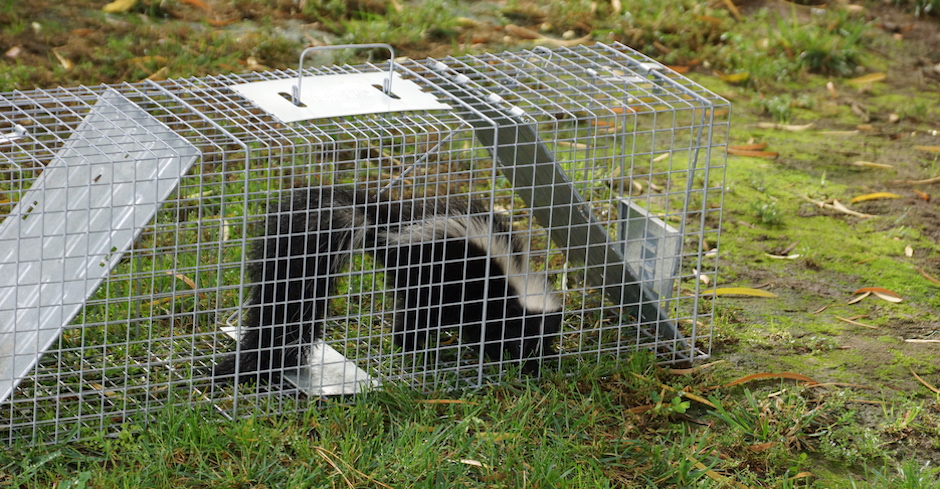How To Avoid Being Sprayed By A Skunk
Getting sprayed by a skunk is a terrible affair. The stench lingers and is very difficult to remove from porous material. The good news is that you can protect yourself with education. Learning about skunk behaviors and what prompts them to spray can help you avoid the angry end of a bad-tempered skunk.
The first thing you should know is that skunks are nocturnal animals. They have poor eyesight and prefer to forage for food at night. Not all skunks you encounter during the day will carry rabies, but many will.
Skunks are also intelligent and shy. They typically try to avoid predators and humans at all costs. However, chance encounters are inevitable. If a skunk is panicked, feels threatened or cornered it will likely spray. Female skunks with young are also more aggressive.
Skunk Encounters
Skunks usually want to get away from people and pets. If you encounter a skunk, it is best to leave them room to get away. They would rather turn and run than spray. If you are out near dawn or dusk, it is best to carry a flashlight since they try to avoid bright light.
When you encounter a skunk, don’t make sudden movements that could frighten the animal. If you aren’t in a position to back away, then you will have to let the skunk leave. Sometimes it helps to gentle jingle your keys or stomp your feet. They will usually flee from the noise.
Skunk Spray Behavior
It is also helpful to know how a skunk acts when it is going to spray. Most often, once the tail goes up it is too late. If the tail is in the air, you’re getting hit with that putrid liquid. A skunk’s aim is phenomenal, and they can shoot that foul-smelling stench up to ten feet in the air.
Before a skunk sprays, it typically stomps its front paws and hisses. This is a type of ceremonial dance to give the enemy time to flee. After the hissing and stomping of feet, the animal will typically turn around to raise its tail. After the tail is in the air, its too late.
Avoiding Skunks
If you are walking your dog, try to do it during daylight hours. Avoid dog walking at dawn and dusk if you live in an area populated by skunks.
As earlier stated, skunks are nocturnal. However, during the spring and summer months they are out more during the day. This is due to mating, reproduction and finding food for their young. With a skunk’s poor eyesight and low disposition to the ground, chance encounters usually happen simply because the animal doesn’t see you until its too late.
Visit our Wildlife Trapper Smyrna home page to learn more about us.

